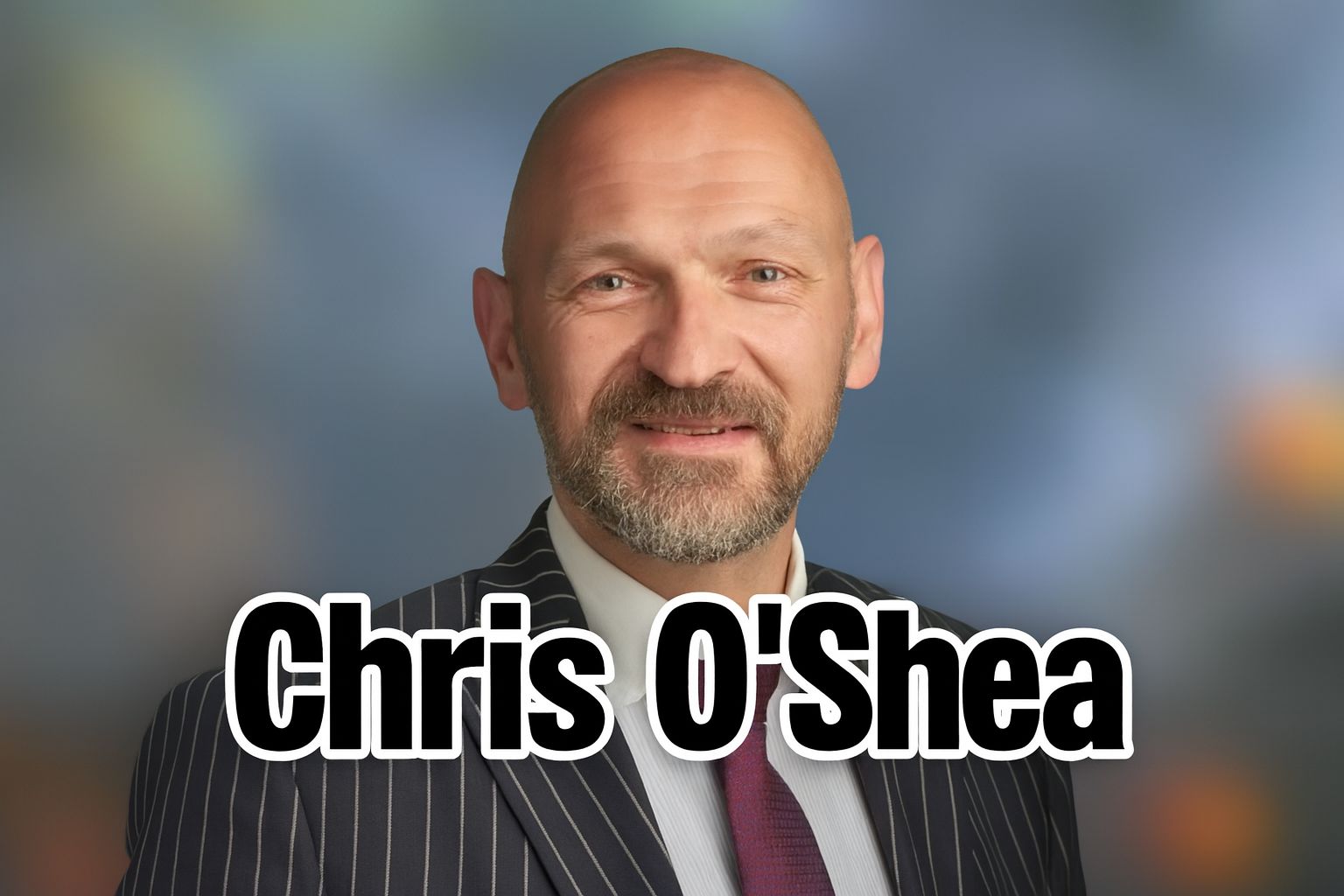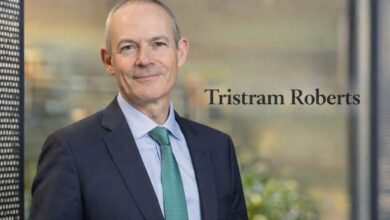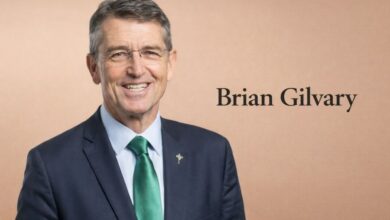Chris O’Shea: Powerful Leadership of Centrica with Praise and Criticism
The Journey of Chris O’Shea – Balancing Success, Challenges, and Public Scrutiny

Table of Contents
ToggleIntroduction
Chris O’Shea, a respected business leader, is best known as the CEO of Centrica, the parent company of British Gas. His journey reflects both positive achievements and the challenges of executive leadership in the volatile energy sector. Rising from humble beginnings in Scotland to leading one of the UK’s largest energy companies, O’Shea has drawn praise for steering Centrica through crises and criticism for his high salary during a time of rising energy bills. His career highlights resilience, financial expertise, and the ability to make bold decisions that impact millions of customers.
Born in Kirkcaldy, Scotland, and armed with strong academic credentials in accounting and business, Chris O’Shea built his career step by step, moving from audit roles to senior finance positions before taking the top job at Centrica. Today, he is recognized as a powerful figure in the UK’s corporate landscape, embodying both the positives and negatives of modern executive leadership.
Quick Bio
| Field | Information |
|---|---|
| Full Name | Christopher Michael O’Shea |
| Date of Birth | 23 October 1973 |
| Birthplace | Kirkcaldy, Fife, Scotland |
| Nationality | British / Scottish |
| Education | Accounting & Finance (University of Glasgow), MBA (Duke University) |
| Occupation | CEO of Centrica |
| Spouse | Stacey |
| Children | Three |
| Age | 51 (as of 2025) |
Early Life and Education
Chris O’Shea grew up in Fife, Scotland, in a family that valued hard work and resilience. When he was around 11 years old, his family relocated to Glasgow due to financial challenges. This move shaped his understanding of the struggles of ordinary households and would later influence his views as a corporate leader in the energy industry.
He studied at St. Paul’s RC Primary School and later at Holy Cross High School. Demonstrating a keen interest in finance and problem-solving, O’Shea chose to pursue Accounting & Finance at the University of Glasgow. His dedication to professional growth did not stop there; he went on to earn an MBA from Duke University’s Fuqua School of Business in North Carolina, USA. He also became a Chartered Accountant and a Fellow of the Energy Institute, qualifications that positioned him as a top-tier financial professional.
Start of Career
O’Shea began his professional journey with Ernst & Young in Aberdeen, working in tax and auditing. These early experiences gave him the technical foundation and discipline required in global finance.
His career took a significant leap forward when he joined Shell plc, where he worked in different locations, including the UK, US, and Nigeria. At Shell, he gained exposure to the energy industry, developing a deep understanding of its complex global operations. The company even supported him while he pursued his MBA, a step that equipped him with leadership skills alongside his financial expertise.
Rising Through Corporate Ranks
After Shell, O’Shea’s path took him to BG Group plc, where he held critical senior finance positions between 2006 and 2012. His responsibilities spanned across Africa, the Middle East, Asia, Europe, and Central Asia, allowing him to understand international markets and diverse regulatory environments.
He later served as Group Chief Financial Officer (CFO) at Vesuvius plc, a materials engineering company, where he honed his ability to lead finance teams in industrial and global settings. In 2015, he joined Smiths Group plc as Finance Director, gaining experience in a FTSE-listed multinational. His decision to step away after two years reflected his commitment to corporate governance and ethical leadership.
Leadership at Centrica
Chris O’Shea joined Centrica plc in 2018 as Group CFO. Just two years later, in March 2020, he was appointed Chief Executive Officer, taking the reins at one of the most challenging times in modern history. The COVID-19 pandemic and a looming energy crisis demanded immediate restructuring and tough decisions.
Under his leadership, Centrica underwent a major reorganization. Approximately 5,000 jobs were cut, more than half of which were management roles. This restructuring was controversial but aimed at simplifying the company’s structure and making it more efficient. O’Shea has emphasized that such measures were necessary to stabilize the business and protect its long-term future.
Achievements and Controversies
As CEO of Centrica, O’Shea has overseen a remarkable turnaround. In 2022 and 2023, the company reported its highest-ever earnings, a dramatic reversal from previous years of instability. These results were celebrated by investors and highlighted his financial expertise.
However, with success came criticism. In 2023, O’Shea’s total compensation reached around £8.2 million, sparking public anger during a time when millions of UK households faced soaring energy bills. Although his base salary was around £903,000, performance-linked bonuses and share awards boosted the figure significantly.
To his credit, O’Shea had in earlier years declined bonuses, citing the financial strain faced by customers. Yet the 2023 remuneration reignited debates about fairness and corporate responsibility, casting him as both a skilled leader and a lightning rod for criticism.
Salary and Source of Income
Chris O’Shea’s income primarily comes from his executive role at Centrica. His pay package includes:
-
Base Salary: Roughly £900,000 to £1.1 million annually.
-
Bonuses and Incentives: Performance-based bonuses and long-term share awards, which often make up the bulk of his pay.
-
Total Compensation: Peaked at £8.2 million in 2023 before being reduced to around £4.3 million in 2024–25.
This fluctuation reflects the performance-based structure of executive pay in large corporations.
Recent Developments
In early 2025, reports confirmed that Chris O’Shea’s base salary would increase by 29% to £1.1 million from April 2025. This announcement once again attracted public scrutiny, especially as UK energy consumers continued to face high household bills. Despite the criticism, Centrica’s board defended the pay rise as necessary to retain top leadership in a highly competitive market.
Legacy and Impact
Chris O’Shea’s legacy as CEO of Centrica is still being shaped, but his influence is undeniable. He is credited with rescuing the company from financial decline and steering it through unprecedented global crises. His strategic decisions restored investor confidence, streamlined operations, and secured record profits.
At the same time, his leadership underscores the difficult balance between shareholder success and public responsibility. O’Shea is admired for his financial discipline and global vision but criticized for being the face of executive pay debates during a cost-of-living crisis. His story embodies the complex realities of leading a major energy company in the 21st century.
Conclusion
Chris O’Shea’s journey from a small town in Scotland to the top of the UK energy sector is both inspiring and controversial. As the CEO of Centrica, he has displayed remarkable financial and leadership skills, driving the company to record profits and stability. Yet his high salary during times of customer hardship has also made him a figure of public debate.
His legacy will likely rest on how he balances corporate success with social responsibility in the years to come. Chris O’Shea remains a powerful example of how leadership can simultaneously attract both admiration and criticism.
FAQs
1. Who is Chris O’Shea?
Chris O’Shea is the CEO of Centrica, the parent company of British Gas, and a Scottish business executive with a background in finance.
2. What is Chris O’Shea’s salary?
His base salary is around £1.1 million in 2025, with total pay depending on bonuses and performance incentives.
3. How many children does Chris O’Shea have?
He has three children.
4. What is his educational background?
He studied Accounting & Finance at the University of Glasgow and earned an MBA from Duke University in the USA.
5. Why is Chris O’Shea controversial?
He has been criticized for receiving multimillion-pound pay packages while energy customers in the UK faced rising bills, though he has also been praised for Centrica’s turnaround and for waiving bonuses in earlier years.



